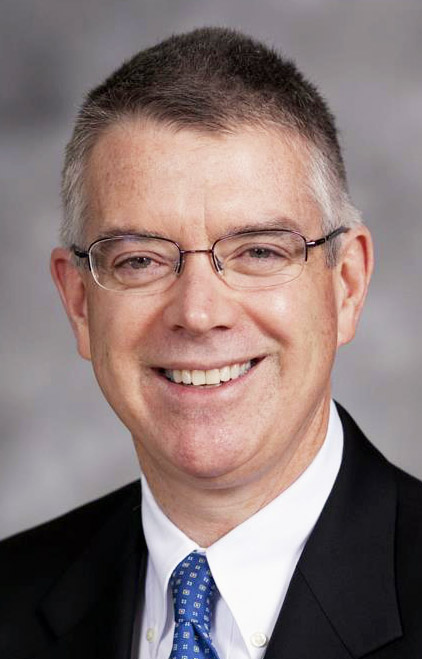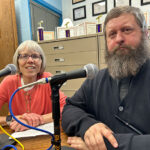By Dr. Tim Millea
Over the centuries, Catholic healthcare workers have been called to help others and to view those in their care as unique creations of God. The obligation to treat others with the guidance of faith is foundational to this work.
In times of crisis, such as the current COVID-19 pandemic, there is a risk of “cutting corners.” However, fundamental morals and values do not change when circumstances change. It is even more important in times of upheaval to maintain the dignity of individuals and their access to healthcare.

The key principles of Catholic social teaching are critically important, especially in times of crisis. The dignity of human life is fundamental and inviolable, and choices made in the care of the individual must consistently recognize that fact. Secondly, that care should follow the principle of subsidiarity, with decisions made at the most fundamentally appropriate level. Finally, the principle of solidarity must be applied.
The Catholic Medical Association’s Ethics Committee states in “Guiding Principles for Catholic Healthcare Professionals during a Pandemic” (March 27, 2020), “… it is imperative that the Catholic healthcare worker and administrators and policy makers continue to re-commit to the Catholic vision of the ‘other’ as ‘another I’ — as St. Pope John Paul II writes — a communio personarum.”
From a practical viewpoint, Catholic healthcare workers must also be responsible stewards of the resources used in caring for others. Guidance from the National Catholic Bioethics Center is quite clear in its “Summary of Triage Principles and Applications for Catholic Health Care Organizations” (April 16, 2020). The document states:
“Health care providers must justly and prudently manage the health care resources available to them, first by increasing those resources and then by judiciously employing those resources to best serve the common good while respecting the dignity of each patient.”
It is equally important to ensure that all individuals receive, without exception, basic human care. To withhold such care from those with mental or physical difficulties of any nature, including advanced age, is not justifiable. Their inherent worth and dignity is no less important.
In the words of the CMA Ethics Committee, “The dignity of human life is the lens through which all care for the sick — in time of crisis or not — should be viewed. God does not make man the arbiter of the value of life and in humility the Catholic health care worker recognizes that no choice should be made that sacrifices the innate dignity of the individual human person …”
Fortunately, many Catholic healthcare systems have developed ethics programs within their facilities to assist in the decisions for treatment and management. Michaela (Byrne) Ebert, a 2007 graduate of Assumption High School in Davenport, is manager for Ethics and Mission Integration with Ascension, a system of 150 hospitals in 20 states.
Some of the greatest concerns are the possible limitations to healthcare access that can be more prominent during a public health crisis. According to Ebert, “We know some people are more likely to delay seeking healthcare for a number of reasons, including concerns about ability to pay, immigration status or lack of trust in the healthcare system.”
The potential lack of adequate resources during a crisis magnifies these concerns. As Ebert notes, “We can generally divide healthcare resources into three categories: space, staff and supplies. During a pandemic, we see all three of these categories stretched. Collaborative stewardship of resources can help relieve some of the strain of resource shortages.”
The need for innovation is even greater in times of crisis, particularly focusing on improved patient access. This has been evident with the rapidly increasing use of telemedicine and mobile care locations. This evolution has progressed rapidly, with Ascension reporting nearly a million virtual visits since March.
It is important to recognize that the responsibility of the Catholic individual in times of crisis is not limited to healthcare workers. Non-medical laity must also follow the bedrock principles discussed above. The common good is of paramount importance during times such as this pandemic and, indeed, “we are in this together.”
Ebert’s assessment of this responsibility that all Catholics share serves as a clarion call: “The most important thing the Catholic laity can do is encourage others to follow the guidelines set forth by public health experts. By acting to prevent the spread of COVID-19, we demonstrate respect for human dignity and our care for the lives of our brothers and sisters in Christ.”
(Dr. Millea is a physician, president of the St. Thomas Aquinas Guild of the Quad Cities and member of St. Paul the Apostle Parish, Davenport.)











